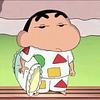Take a photo of a barcode or cover
Graphic: Addiction, Alcoholism, Cursing, Death, Drug abuse, Drug use, Gun violence, Homophobia, Incest, Mental illness, Racial slurs, Racism, Sexism, Suicide, Toxic relationship, Violence, Blood, Antisemitism, Suicide attempt, Murder, Toxic friendship, Alcohol
Graphic: Suicidal thoughts, Suicide, Suicide attempt, Toxic friendship
Moderate: Incest, Mental illness, Panic attacks/disorders
Minor: Homophobia, Racism
I don't know what Donna Tartt laced these pages with ... probably cocaine? I could not put this book down. Had me reading at night, which has not happened since I was a teenager 🥴
The plot was beautifully built and her way of writing it's so captivating. Her views on how to build suspense are refreshing, and the fact that this is a 1992 novel speaks for itself.
Much like the main character Richard, the first half of the book is set up on adoring this clique of literary and elitist students. You want to (want to) be them, with them, as erudite as them. As their flaws come to light they are viewed as whimsical and exciting, just to add to the mystic aura that they project.
What I really liked: the disenchantment of Richard in the second part of the book – the way the spell was broken and just like an addict that stopped being elated by their presence, he sees the mess all around and within them. The god-adjacent portrait of the chosen humans; the analogies to classical myths; how Bunny flew too close to the sun and his fall.
What I wish we saw more of: The twins' psychology – they were both lambs until one of them turned wolf almost inexplicably. What really happened during the bacchanal and what is up with Julian.
For what concerns the bacchanal, I could even live without knowing what went down. As Richard says in the book, when he reads biographies of serial killers, they tend to fixate on the most mundane things instead of the villainous acts and desires. It could be kind of the same here – I admit that the whole bacchanal ordeal was far more fascinating to me than the murder.
Something that I cannot get over is Julian Morrow, described as this wise whisperer that fascinates the smarts and eludes the mundanes. And yet we see that he is merely a human too. How could Henry be so violently attached to such a haughty person? He could have surely seen beyond Julian's most superficial attitude and his pride. Is Julian supposed to be seen as the Christians' almighty God? Above everything, interested in nothing, incapable (or unwilling) of aid.
Anyway, glad that I stumbled upon the BBC's Donna Tartt interview as hearing her speak was what made be grab the book from my to-be-read shelf.
Graphic: Addiction, Alcoholism, Bullying, Cursing, Death, Domestic abuse, Drug abuse, Drug use, Emotional abuse, Gun violence, Homophobia, Incest, Mental illness, Misogyny, Panic attacks/disorders, Physical abuse, Rape, Self harm, Sexism, Suicide, Suicide attempt, Murder, Gaslighting, Toxic friendship, Alcohol, Sexual harassment, Classism
Moderate: Animal cruelty, Animal death, Racial slurs, Racism, Blood
Minor: Panic attacks/disorders, Car accident, Death of parent
Graphic: Addiction, Alcoholism, Death, Drug abuse, Drug use, Emotional abuse, Homophobia, Incest, Mental illness, Racial slurs, Racism, Suicidal thoughts, Suicide, Toxic relationship, Blood, Grief, Religious bigotry, Medical trauma, Suicide attempt, Toxic friendship, Abandonment, Alcohol, Injury/Injury detail
Graphic: Addiction, Alcoholism, Drug abuse, Drug use, Gun violence, Homophobia, Incest, Mental illness, Misogyny, Sexism, Suicide, Violence, Blood, Vomit, Medical content, Suicide attempt, Alcohol
Minor: Cancer, Car accident
Graphic: Alcoholism, Cursing, Death, Suicidal thoughts, Toxic relationship, Violence, Grief, Suicide attempt, Murder, Toxic friendship, Classism
Moderate: Drug abuse, Drug use, Incest, Mental illness, Sexual assault
Minor: Homophobia, Racism, Xenophobia, Religious bigotry
At each time you read it you end up catching new details and nuances about the events that happend.
During the reading, the purpuse of the critic against the Academia itself is almost lost as you and the narrator become enchanted with the surroundings of the university, and the eccentric greek club (which the history centers).
Moderate: Alcoholism, Animal cruelty, Animal death, Biphobia, Bullying, Cursing, Death, Domestic abuse, Drug abuse, Drug use, Emotional abuse, Gun violence, Hate crime, Homophobia, Incest, Mental illness, Panic attacks/disorders, Racial slurs, Racism, Sexism, Toxic relationship, Islamophobia, Grief, Suicide attempt, Murder, Gaslighting, Toxic friendship, Alcohol, Sexual harassment, Classism
It is an excruciatingly slow book, but hard to put down. You want to know how it will end, even when you can guess at some parts. If you can hang on until the second half, it picks up in interest, but it still moves just as slow. Until about the last 50 pages, when it picks you up, spins you around, slaps you for good measure, and then gently sits you down and bids you a pleasant evening.
It has all the academic atmosphere and intrigue of Dead Poet's Society, and all the self-absorption and drudgery of Catcher in the Rye. If you like Salinger, you'll probably like this.
Graphic: Addiction, Alcoholism, Bullying, Cursing, Death, Domestic abuse, Drug use, Emotional abuse, Gore, Gun violence, Homophobia, Incest, Mental illness, Misogyny, Panic attacks/disorders, Physical abuse, Racial slurs, Self harm, Sexism, Sexual content, Suicidal thoughts, Suicide, Violence, Blood, Antisemitism, Islamophobia, Grief, Suicide attempt, Murder, Gaslighting, Toxic friendship, Alcohol, Classism
Minor: Rape
Graphic: Alcoholism, Death, Drug abuse, Mental illness, Panic attacks/disorders, Suicidal thoughts, Suicide, Violence, Blood, Grief, Murder, Toxic friendship, Classism
Moderate: Homophobia, Incest
Minor: Eating disorder
Graphic: Addiction, Alcoholism, Death, Drug use, Homophobia, Incest, Mental illness, Panic attacks/disorders, Self harm, Violence, Grief, Suicide attempt, Murder, Classism



